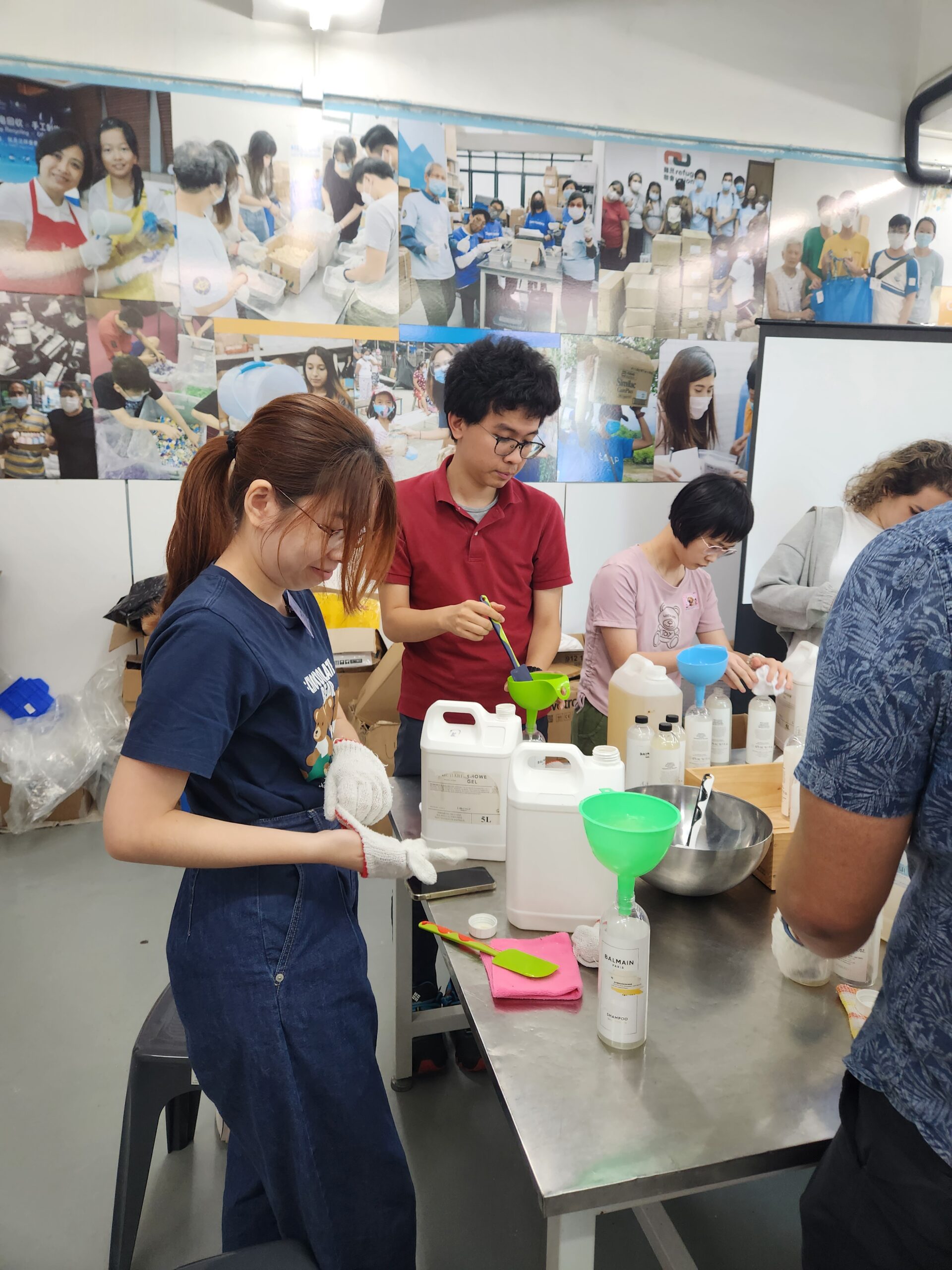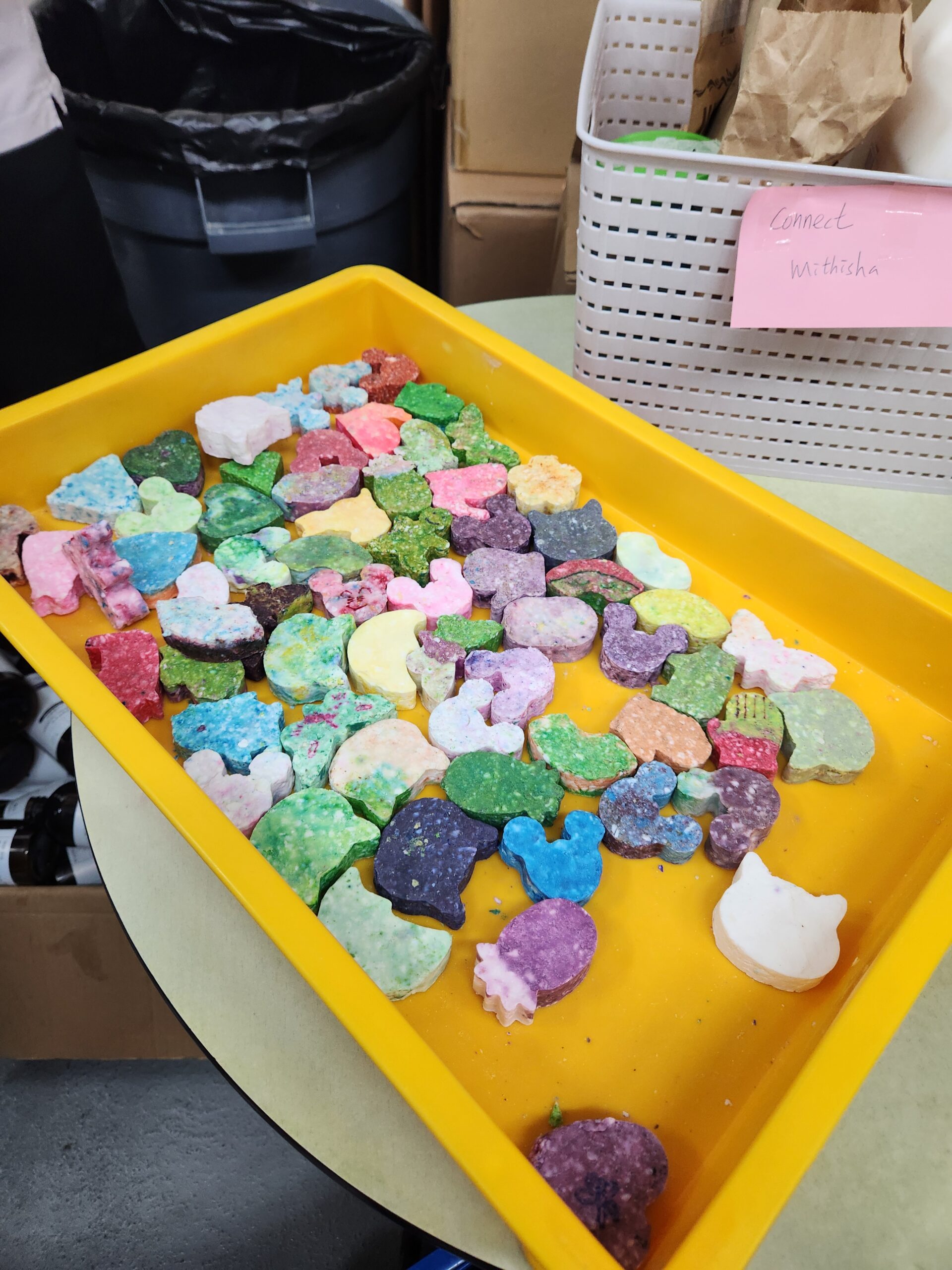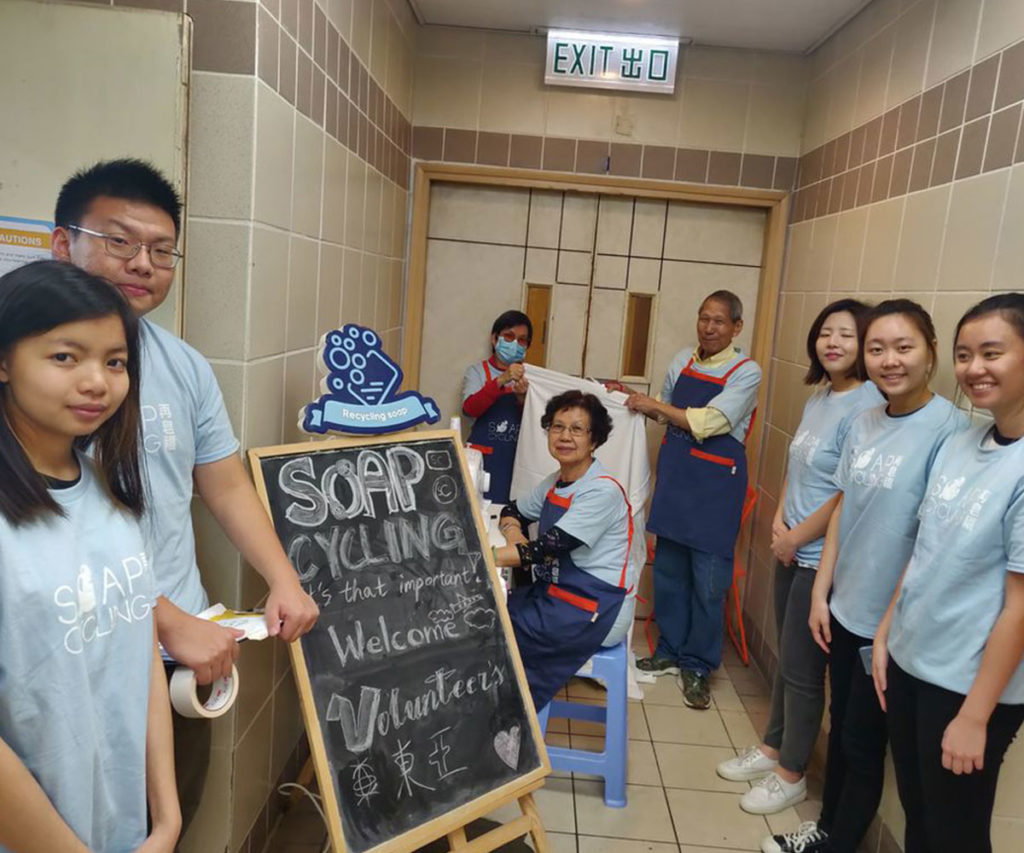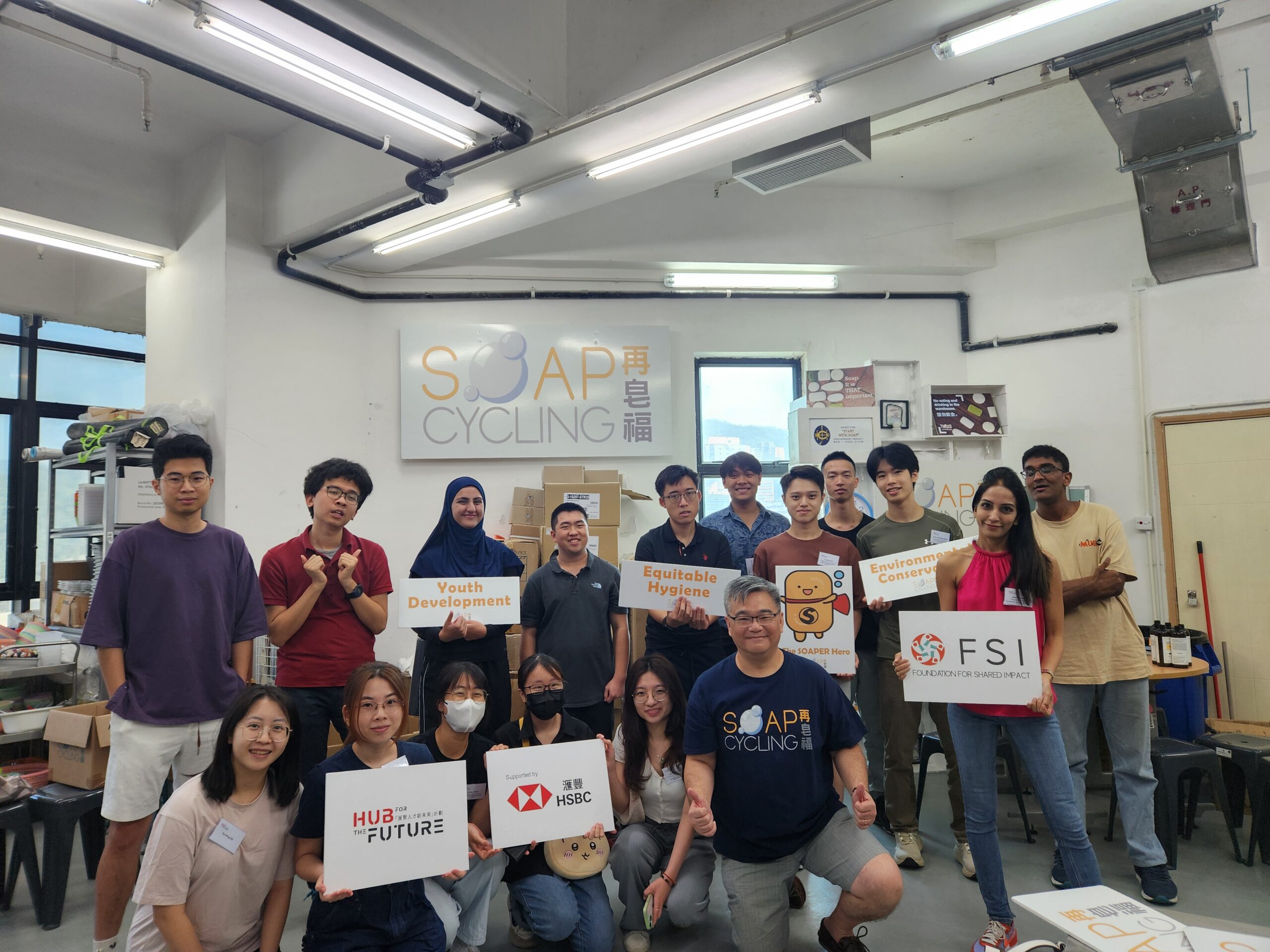
Every month, up to six tonnes of lightly used soap bars are sent to landfills by hotels in Hong Kong alone. Every year, 400,000 children around the world die from largely preventable diseases like pneumonia and diarrhoea, which can be resolved by a straightforward solution – handwashing with soap.
That is why Soap Cycling was founded as a charity in Hong Kong in 2012 – to collect lightly used soap bars from hotels, recycle them into new soap bars, and distribute these precious hygiene resources to communities in need in Hong Kong and beyond. As Asia’s first and largest youth-led soap recycling organisation, Soap Cycling also empowers disadvantaged youth and senior citizens through dignified work opportunities offered by its MEY Programme.

By providing members of disadvantaged communities with training and meaningful work, Soap Cycling is able to magnify its impact by averting lifesaving materials from landfills, effectively reducing environmental waste, and filling in the gaps in hygiene needs. It is little wonder why many corporations are keen to work with Soap Cycling to achieve the E and S in their ESG (environment, social, governance) goals.
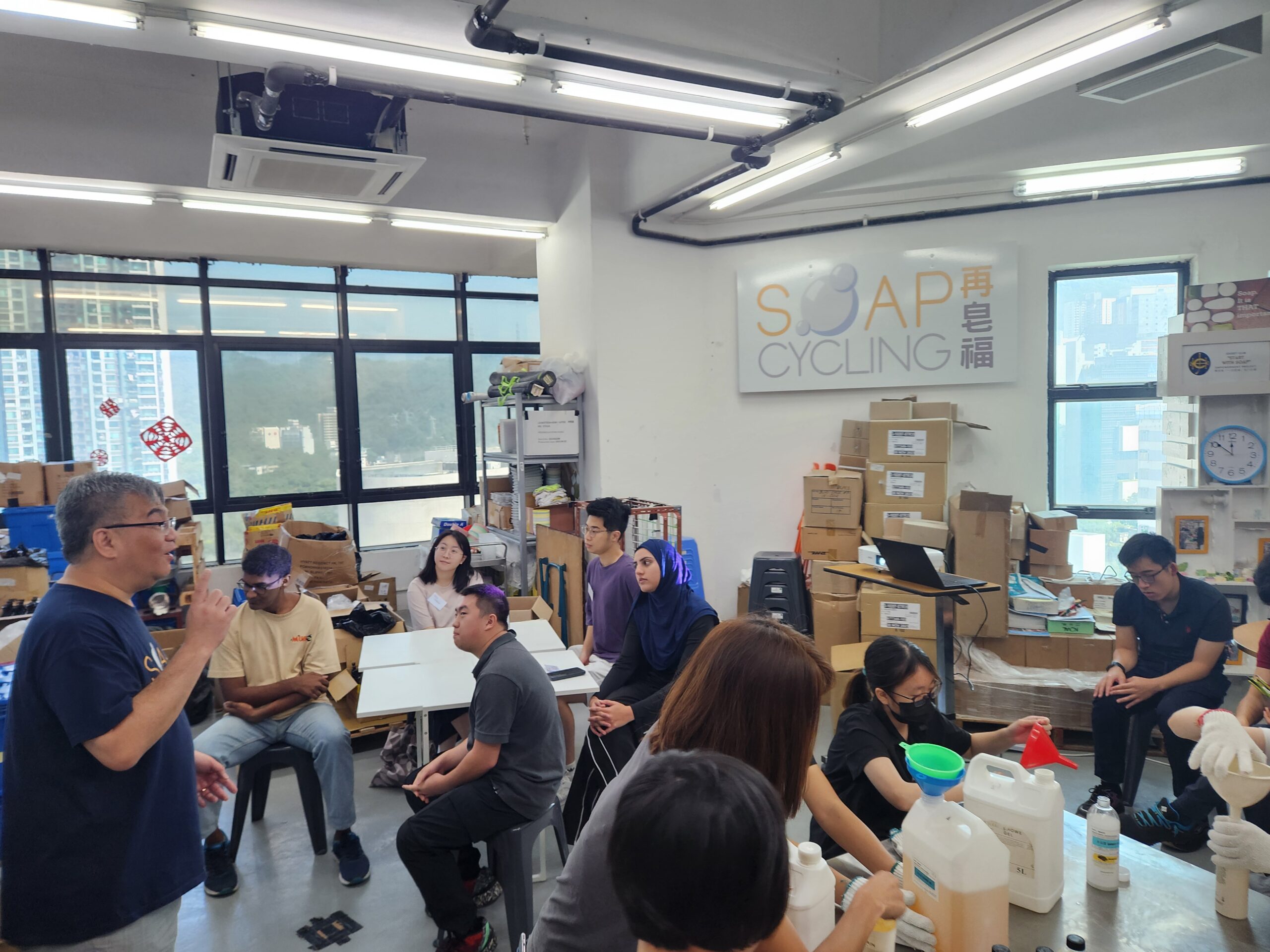
HSBC Scholars Learning about the Importance of Soap
On 12 October 2024, HSBC Scholarship recipients joined a Soap Recycling Workshop organised by Foundation for Shared Impact (FSI), where they volunteered at Soap Cycling’s warehouse to recycle liquid soap.
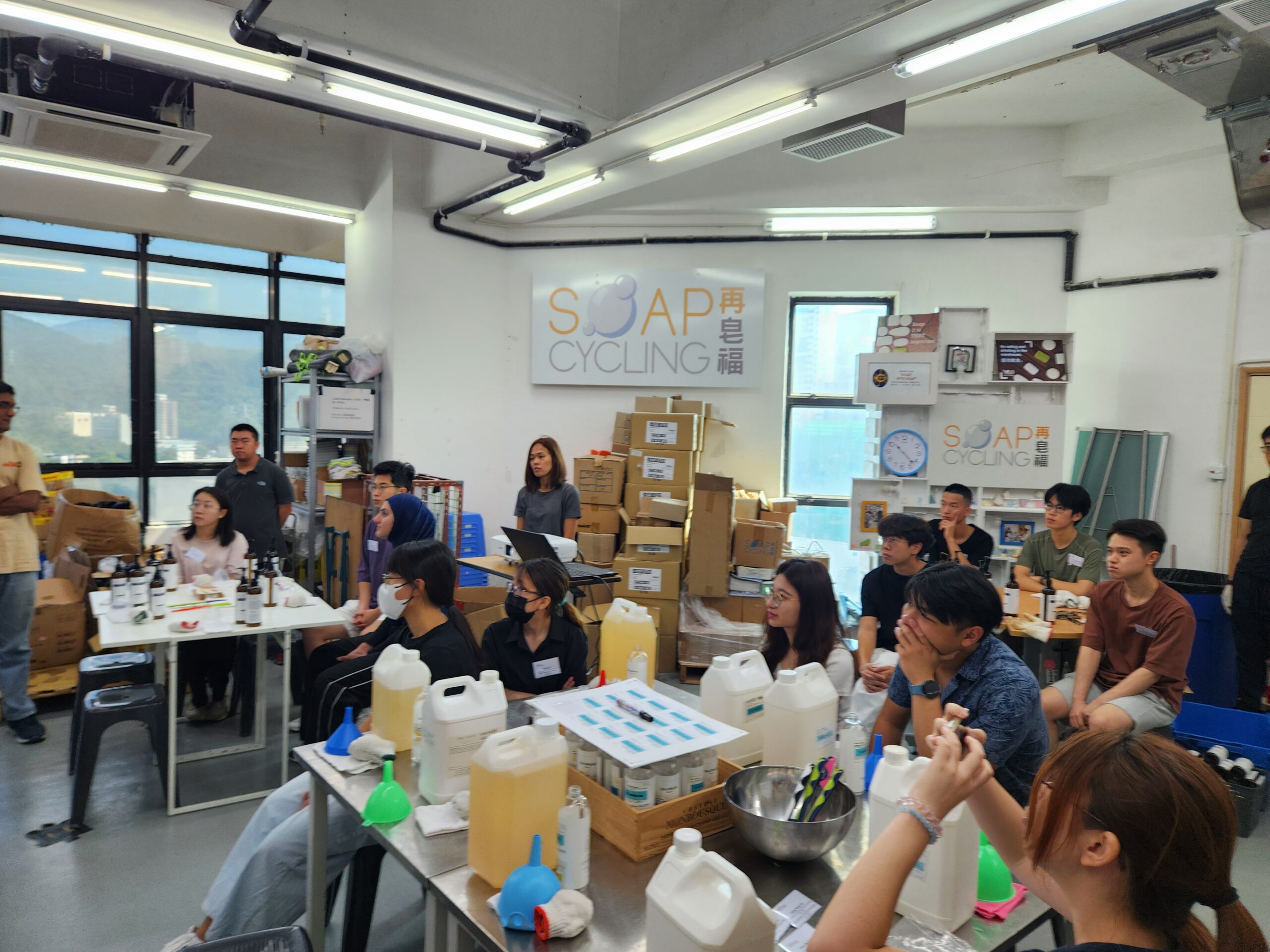
The workshop started with a briefing session by Ronald Ho, General Manager at Soap Cycling. There is a misconception about used soap – people think it’s infested with bacteria and that it transmits diseases. That can’t be further from the truth, as bacteria live on the fat of our skin, not the soap. When we wash our hands, the bacteria are attracted to the water but not the soap itself, and the soap molecules stick to the grease and the water so the grease is removed from the skin by running water. Unless your skin is too sensitive or is injured, recycled soap is as safe to use as any other soap.
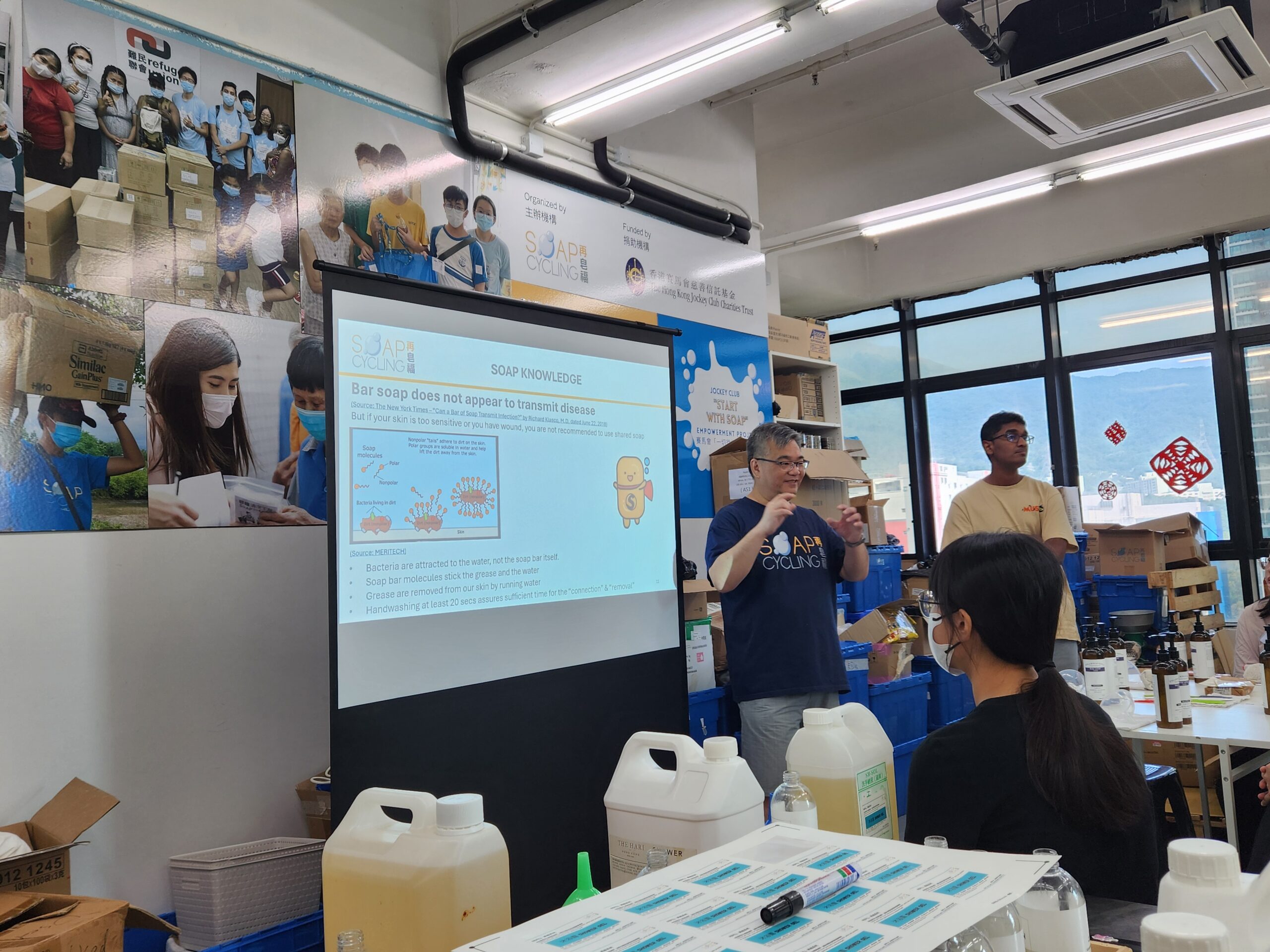
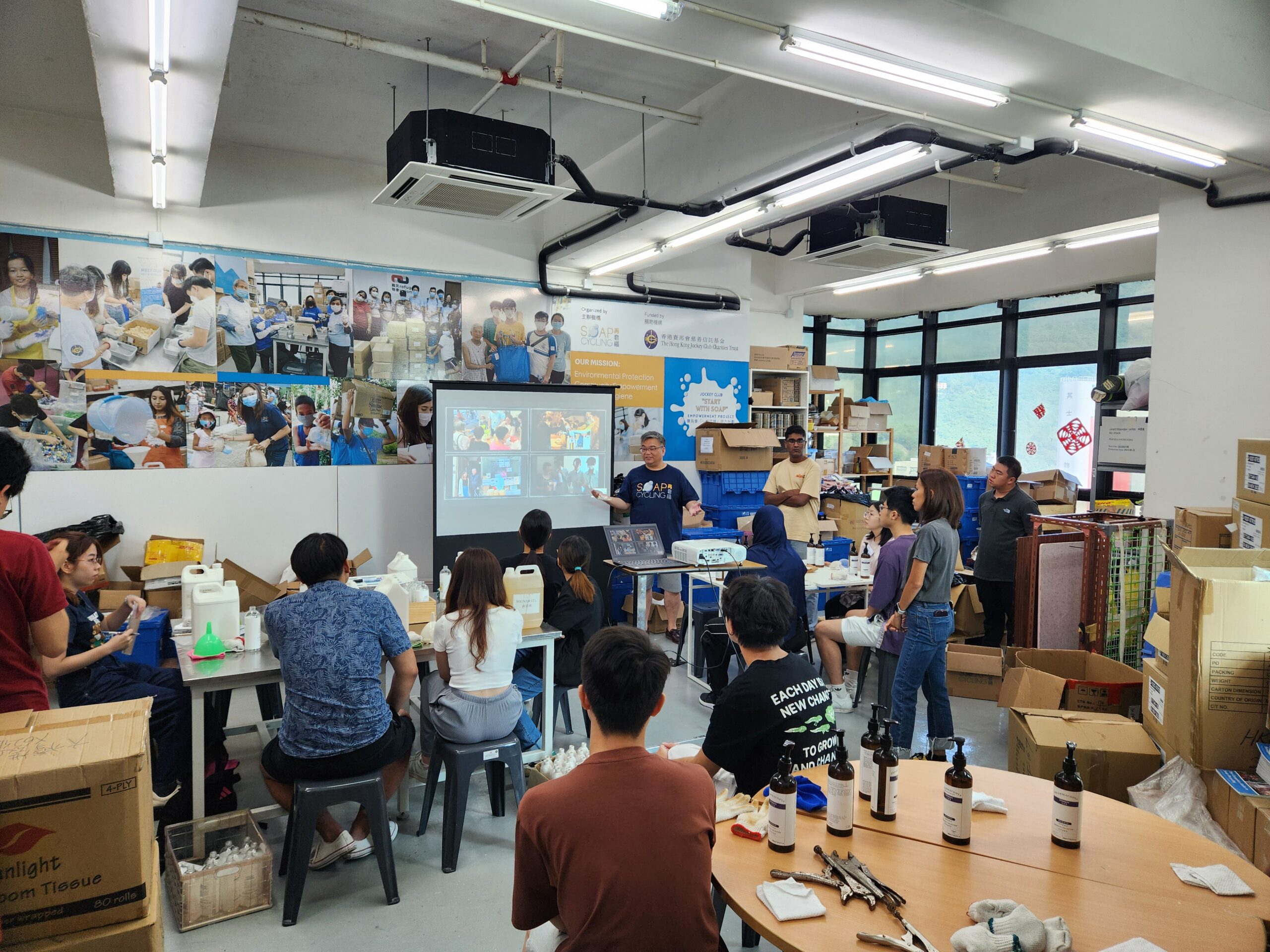
Ronald also explained the difference between bar soap and liquid soap, and the reason why bar soap is more eco-friendly than liquid soap. “For starters, liquid soap has to be stored in plastic bottles, and the water they contain results in a high water footprint. Additionally, the packaging waste, the energy used to manufacture the plastic packaging, and the chemical pollution generated by liquid soap are higher than soap bars. Also, liquid soap contains fuel while soap bars are made of animal oil or plant oil, which is more natural. And this is perhaps something few people are aware of: more liquid soap is needed than a soap bar to wash the same amount of things – we’re talking about using 25% more of liquid soap per wash.”
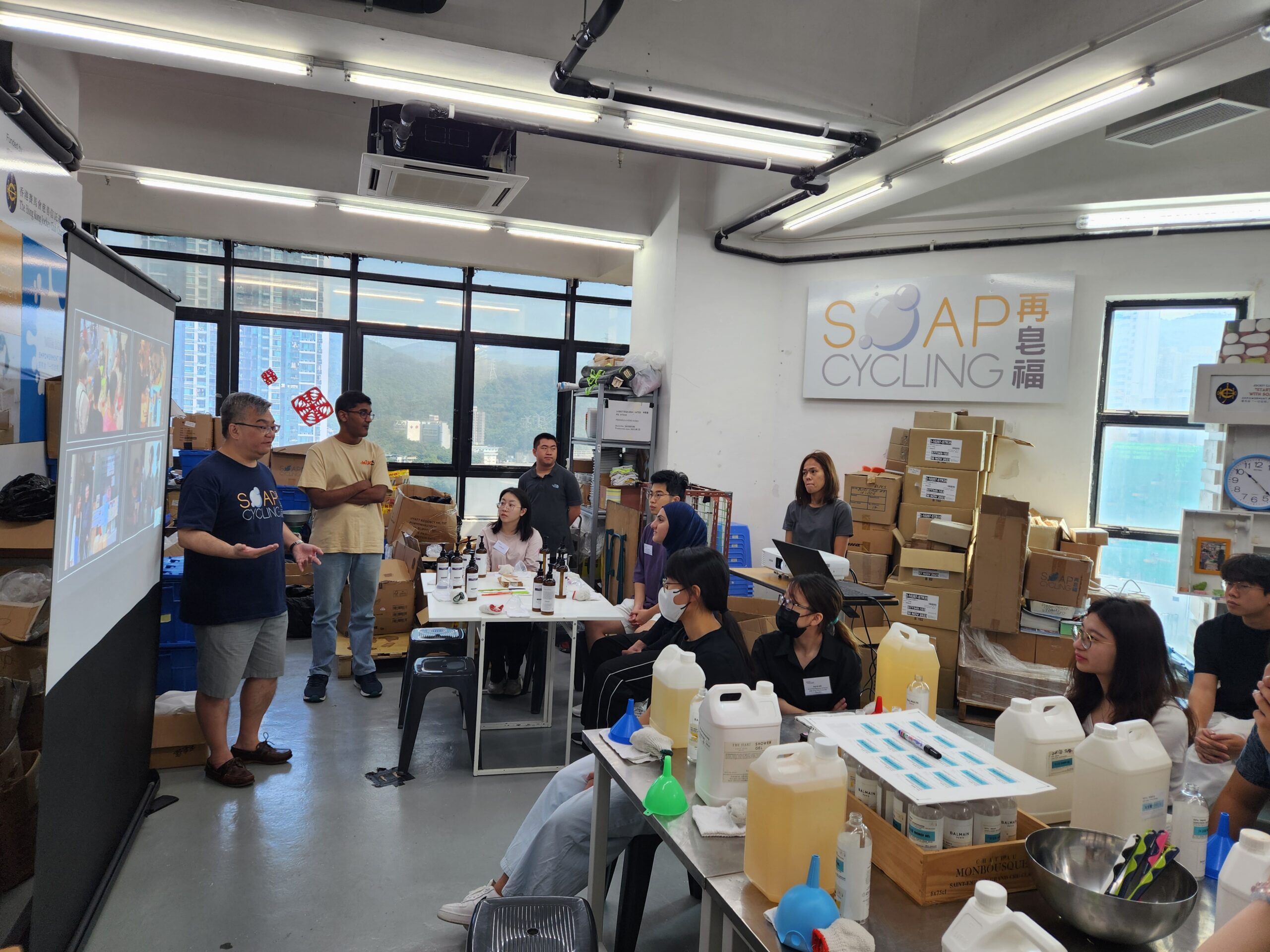
Ronald then took participants on a tour around the warehouse, where they learned about how the collected soap bars are processed and recycled through a machine. Participants then dived into group work to empty, refill, and bottle liquid soaps, shampoo, and lotions for hotels and communities.
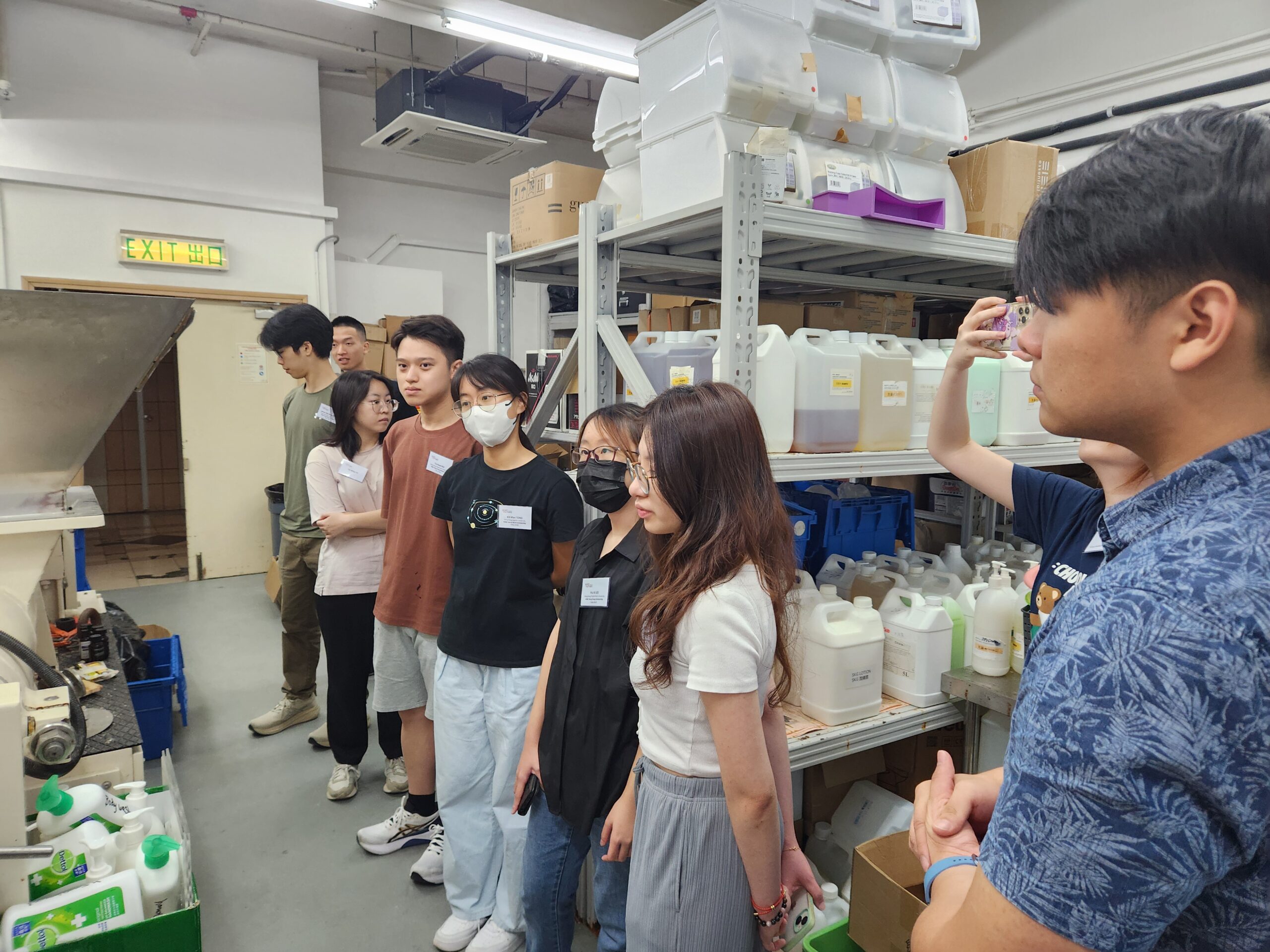
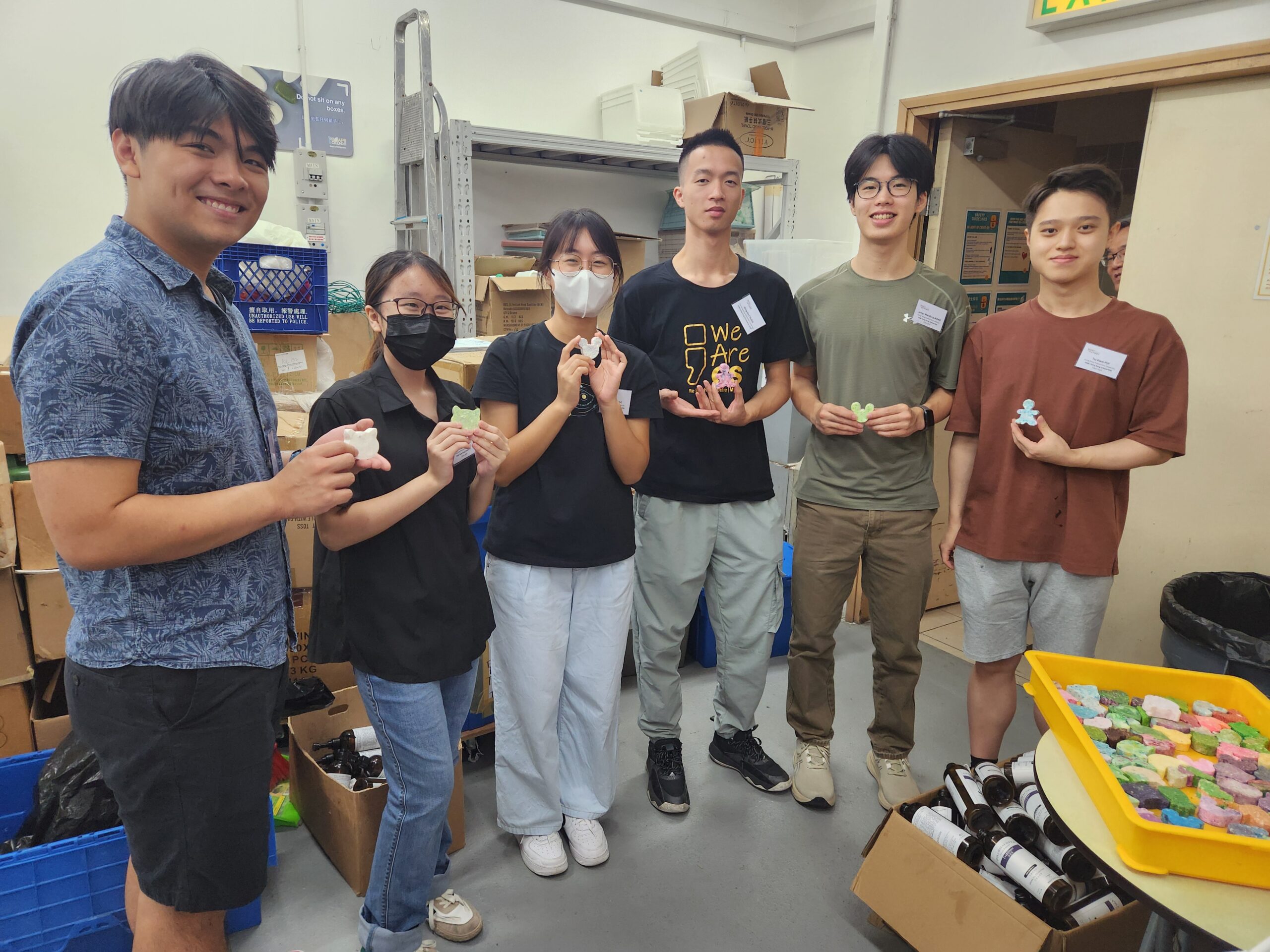
After the workshop, HSBC Scholar James Wai-bong Wong said, “I’ve learned a lot from this Soap Recycling Workshop, from how soaps are collected from hotels to how they are processed and redistributed to the elderly or children in need. I helped to empty bottles of unused shampoo and then fill the shampoo into new, bigger bottles, which will be distributed to residents in public housing estates. The workshop is really meaningful and I encourage other people to join.”
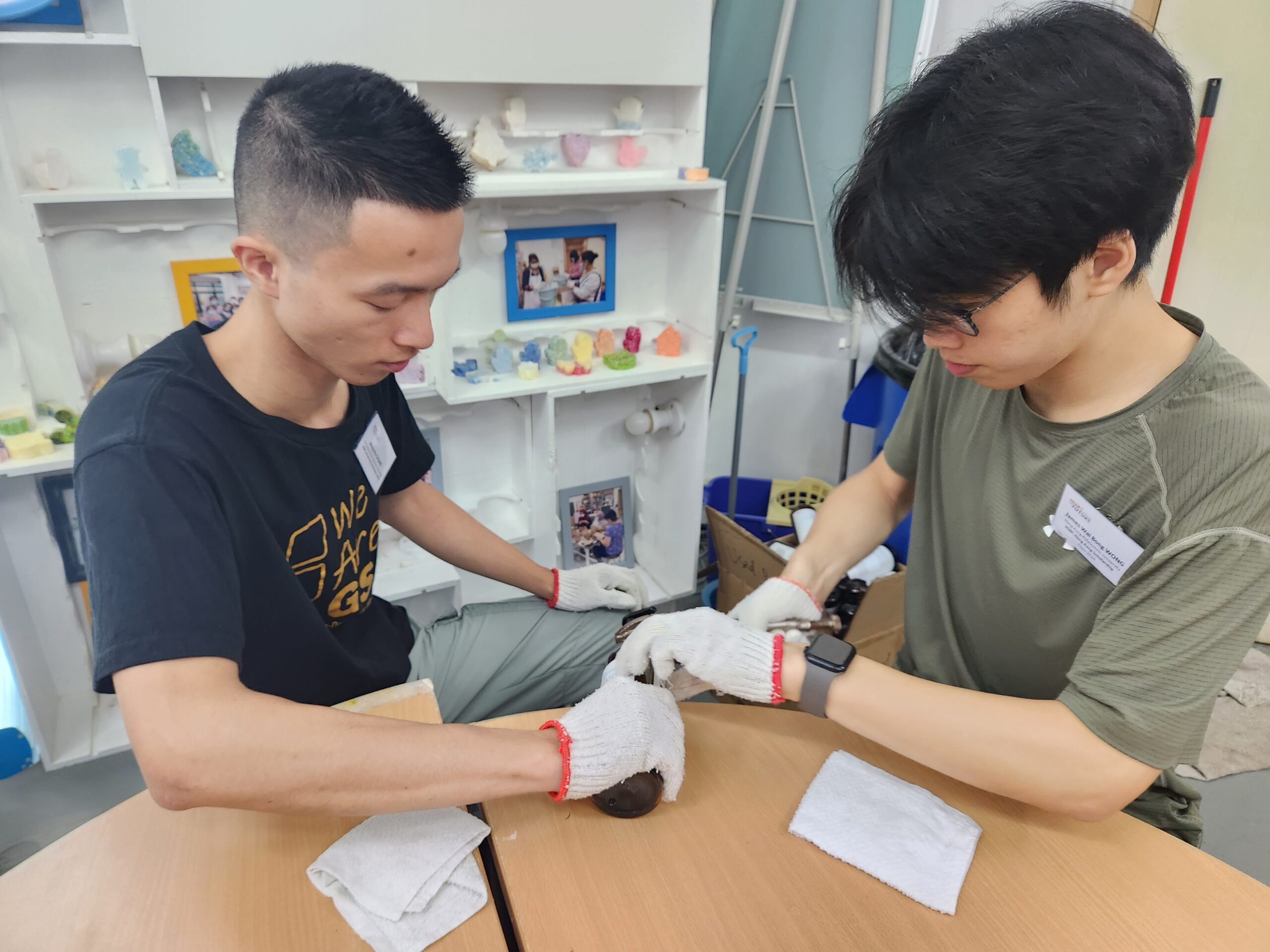
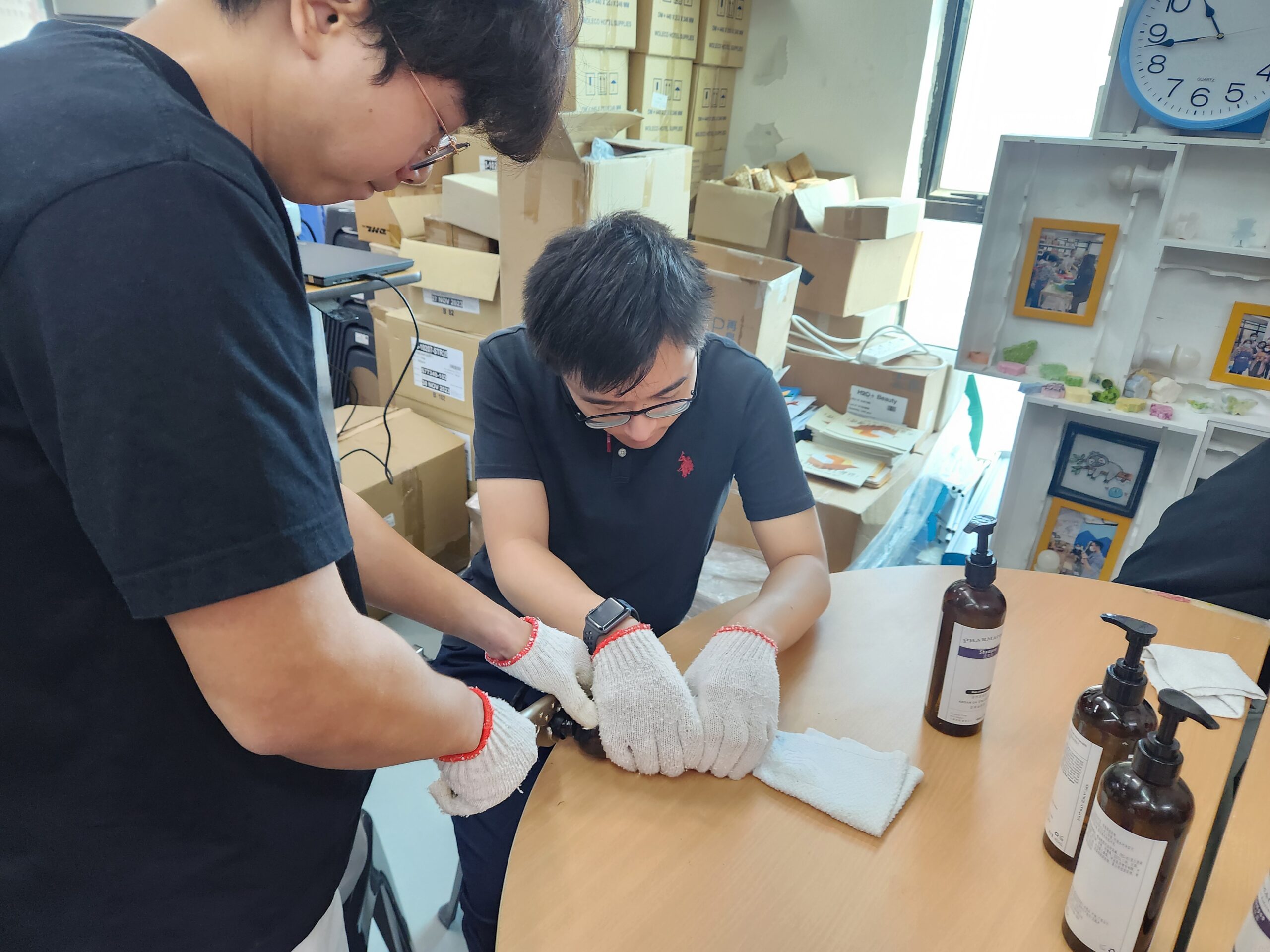
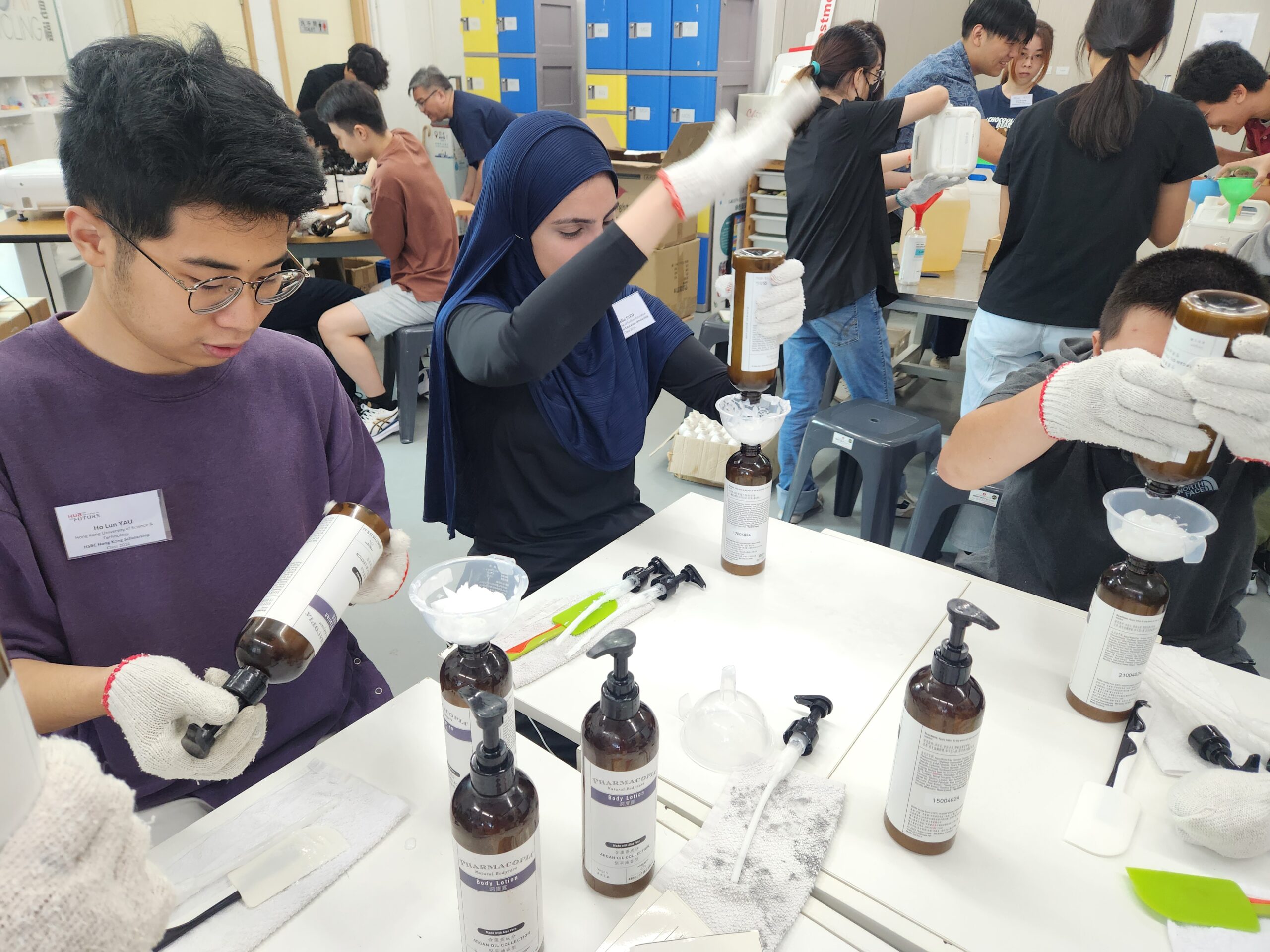
Said Areeba Syed, another Scholar: “I have learned today that bar soap is relatively more eco-friendly than liquid soap. Also, I did not know this before, but now I do know that bar soap is actually a very important part of our community as there are people who are in need of these basic essentials.”
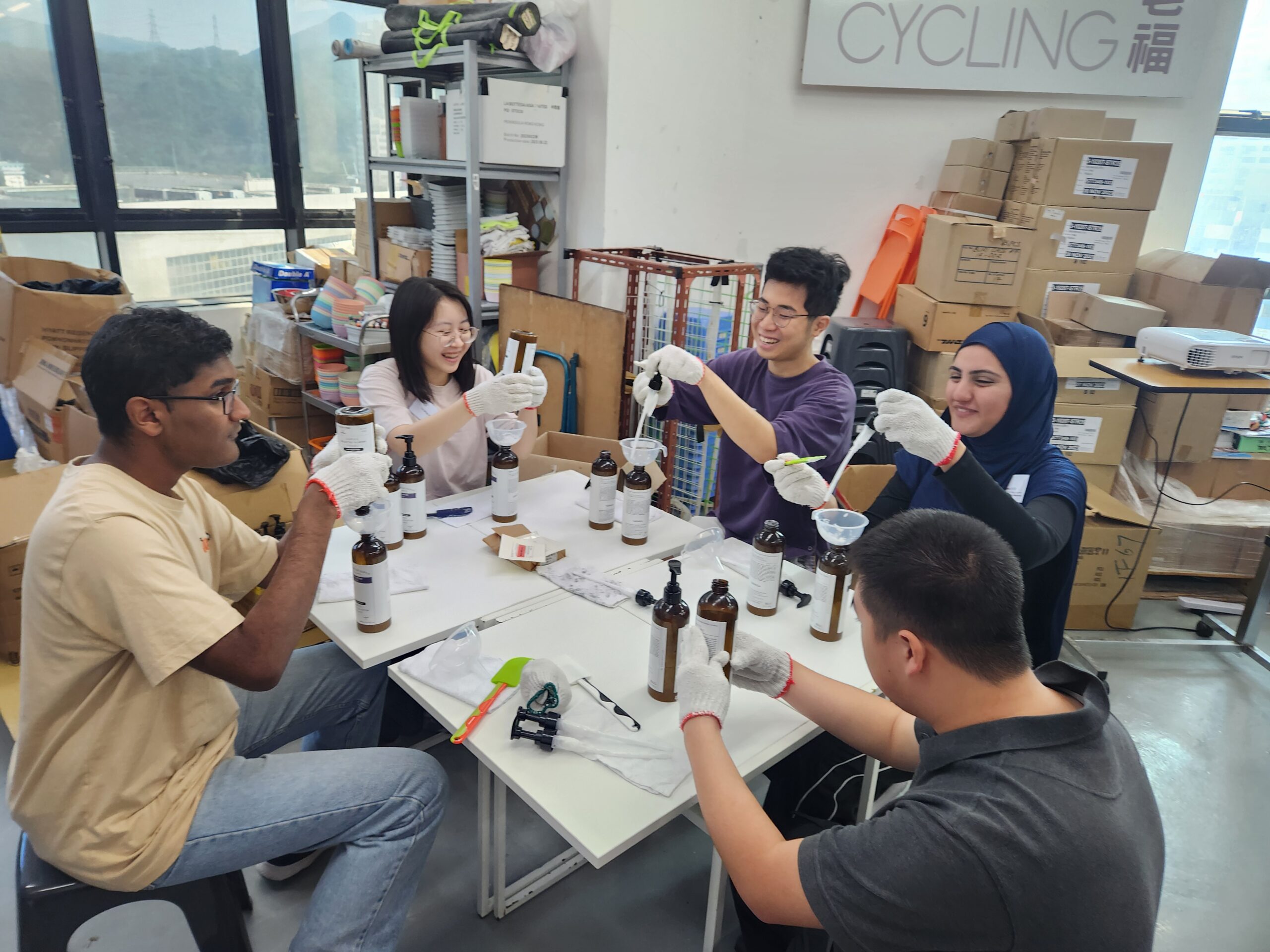
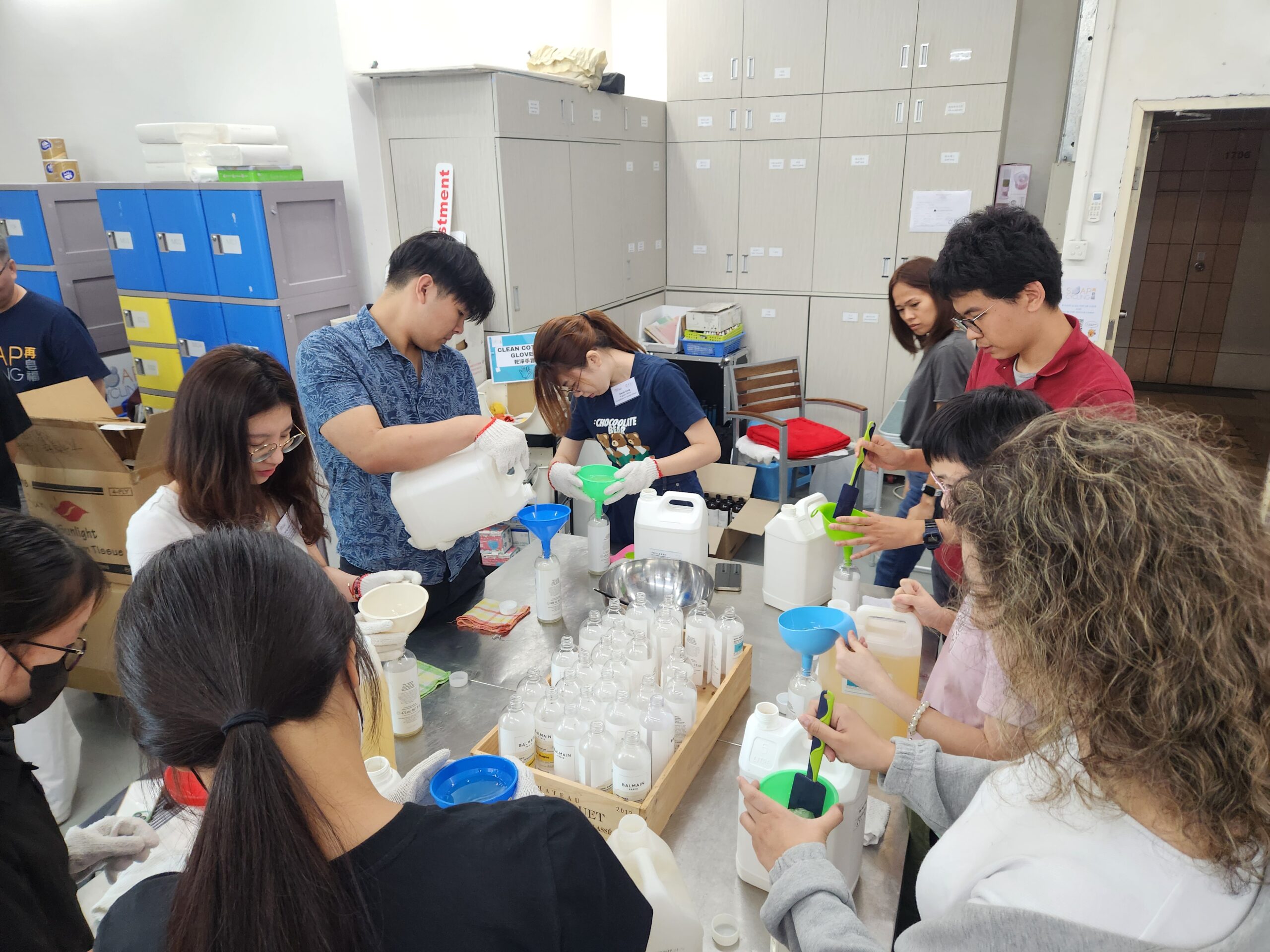
Jack Wing-ho Chung added, “I’ve learned a lot, especially the patience required of the whole soap recycling process. I think it’s meaningful because we can reuse the soap collected from the hotel, and we can deliver to people who need soap.”
